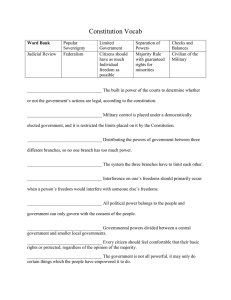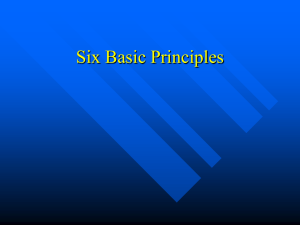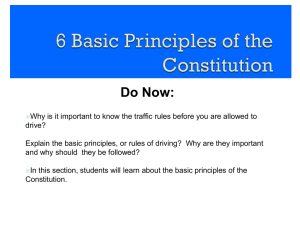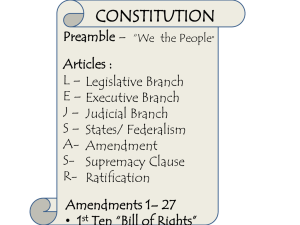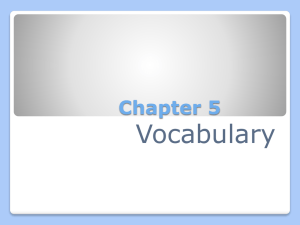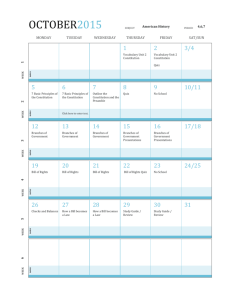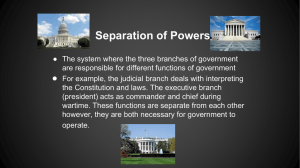Principles of the Constitution
advertisement
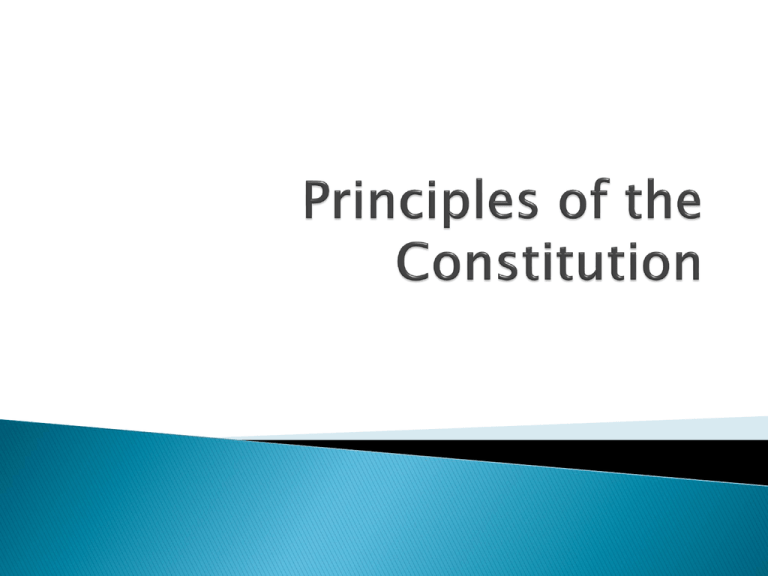
The constitution was planned on certain principles (basic truth, law, or assumption) The 6 principles are ◦ ◦ ◦ ◦ ◦ ◦ Popular Sovereignty Limited Government Separation of Powers Checks and Balances Judicial Review Federalism The Preamble of the Constitution begins with this bold phrase: “We the people….” These words tell people that in the US, the people establish the government and give it its power. Definition: people hold all power because they elect the leaders of the national and state governments The Constitution sets limits on the power the government has Government must obey the law according to the principles of the Constitution The government and its officers are never above the law Government power is not only limited; it is also divided Constitution assigns power to each of the three branches Legislative (Congress)- makes the laws Executive (President)- enforces the laws Judicial (Federal Courts)- interprets the laws Separation of powers prevents a misuse of power by any of the three branches Limits are placed on each branch to prevent one branch from becoming too powerful These limits extend the restrictions established by the separation of powers Branches have the authority to restrain the Prevents tyranny by one branch actions of either of the two branches Supreme Court decides whether a branch has overstepped their limits They review the governmental actions and cancel (nullify) any that are unconstitutional Definition: government system in which power is divided between the national and state governments Both levels have their own agencies and pass laws that affect citizens Helps keep the national government powerful but not too powerful to threaten the state governments

